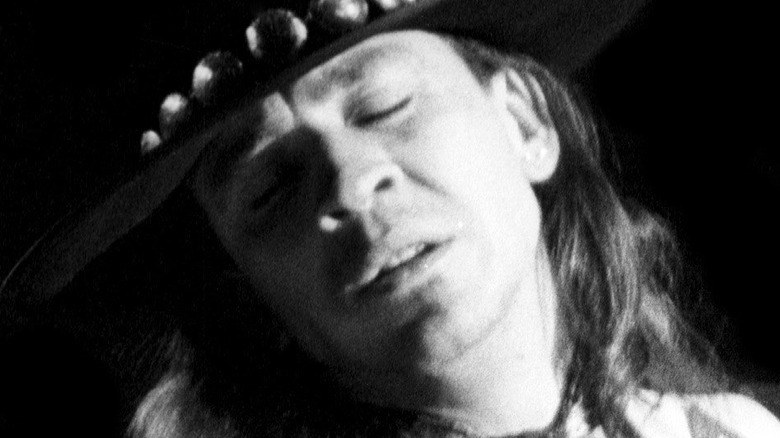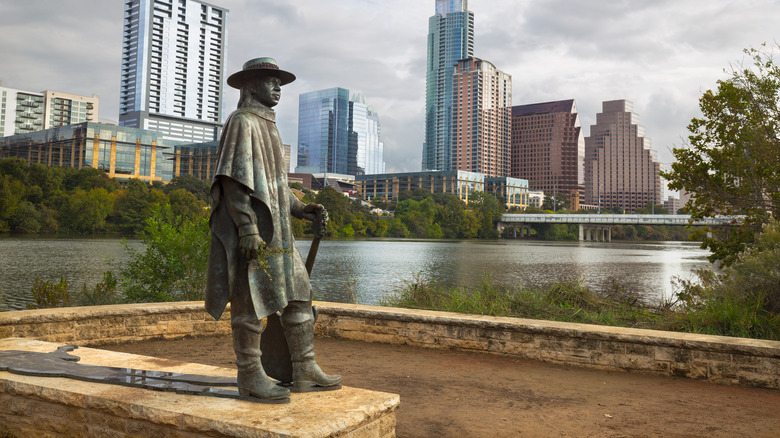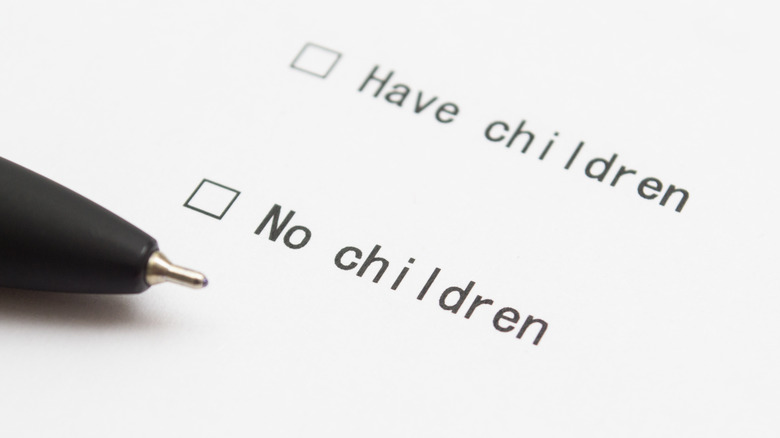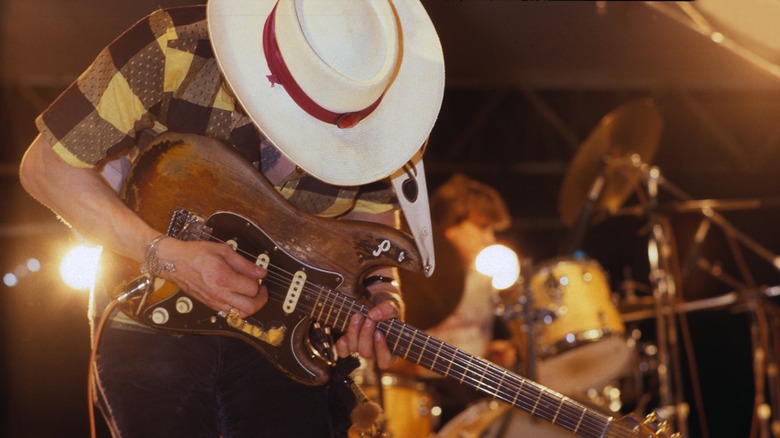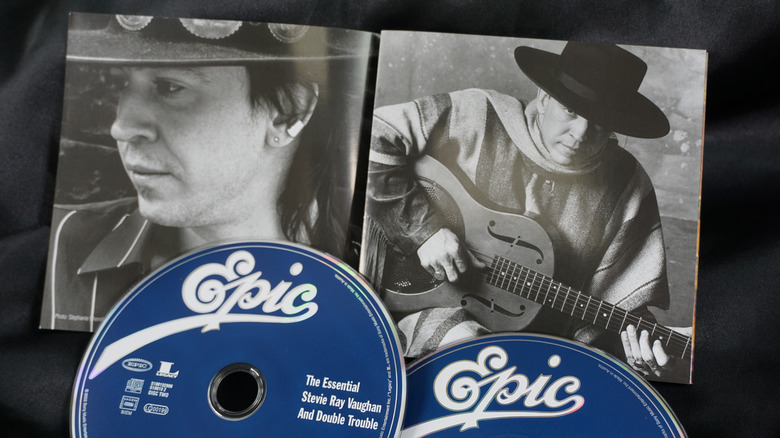Here's Who Inherited Stevie Ray Vaughan's Money After His Death
The 1980s were a time for some incredible blues rock musicians to shine. Bands and musicians such as Tom Waits, The Rolling Stones, Robert Cray, and more put out noteworthy albums during the decade. Among them was Stevie Ray Vaughan. Many will know Vaughan for some of his classic songs, like "Voodoo Child" and "Cold Shot," but he was also an exceptional guitar player. As the official Stevie Ray Vaughan website notes, he was ranked #12 on the greatest guitarists of all-time list by Rolling Stones.
Stevie Ray Vaughan's impact on rock is immeasurable. Countless rock musicians have paid tribute or cited him as a reference, like John Mayer, Gary Clark Jr, Corey Stevens, and more, as Rolling Stones says. But unfortunately, rock legends don't live forever. Vaughan tragically died on August 27, 1990, in a helicopter crash, sending ripples throughout the music industry for years to come (via Stevie Ray Vaughan Archive). When a celebrity passes, oftentimes the matter of who inherits what and who gets the estate comes to mind. So, who inherited Vaughan's money after his passing?
Who was Stevie Ray Vaughan?
As with all music legends, there's always an origin story. Vaughan's just might be one of the rougher ones. As states by the official Stevie Ray Vaughan website, Vaughan was born on October 3, 1954, in Dallas, Texas, where he became interested in music at a very early age. Vaughan was a talented child, having played guitar from the very young age of 7. He had played in various garage bands through his rambunctious youth, until he made the decision to drop out of school and pursue music full time. Vaughan had gone from band to band, finding gigs at various venues.
He didn't form his own band until years later. That time would come in 1981, when Jack Newhouse, Tommy Shannon, Chris Layton, and Vaughan himself, assembled the band known as Double Trouble. Both Vaughan and his band had made a name for themselves in Texas, as they played in various clubs across the state. Vaughan eventually got to perform on David Bowie's album "Let's Dance," soon landed a record deal with producer John Hammond, and the rest was history (via Far Out Magazine).
Stevie Ray Vaughan was childless and unmarried at death
When someone dies, generally a person or group of people are designated as their heirs, which means they inherit property, wealth, and sometimes gain control over an estate. This process of property and estate inheritance is often called succession, as defined by the Legal Information Institute of Cornell Law School. One important thing to note with succession laws, however, is that they can and often do vary from state to state. As Nolo explains, states usually determine where an estate will go if a will does not exist. In general, spouses and children are highest priority, followed by next of kin.
As it relates to Stevie Ray Vaughan, he died with no will nor surviving spouse and children, according to the Stevie Ray Vaughan Archive. In accordance with state law, this means that his next of kin — his brother Jimmie Vaughan — received control of his estate and assets. The surviving Vaughan brother is in charge of his estate to this day.
Vaughan's estate value at death may surprise some people
After Vaughan tragically died, the matters of his estate were decided by state and the Vaughan family. Surprisingly, Vaughan didn't die with as much money as many people might've thought. As detailed in the Stevie Ray Vaughan Archive, the assets collected only totaled $672,057.56. Given Vaughan's legendary status in rock music, along with his very successful music career, this sum might seem rather paltry to some.
Along with these assets, the helicopter company that owned the helicopter Vaughan died in also paid out a settlement of $300,000 to the Vaughan family. Some of these assets include stocks and bonds, physical goods like a Chevrolet Caprice, 34 guitars, various speakers and amps, along with royalties from songs. As the Austin Chronicle notes, Vaughan had also accrued $68,850 in debt, further adding to the small sum of his overall estate after his death.
Vaughan's estate continued to accrue revenue after his death
As mentioned earlier, Jimmie Vaughan now runs his late brother's estate. This comes with many privileges, like him being able to receive money from all sales of his brother's music. One peculiar thing, however, is that the Vaughan estate is actually making significantly more money with posthumous releases than it did when Vaughan was alive. As the Phoenix New Times reports, the Vaughan estate, under Jimmie's command, had released multiple posthumous albums a few years after Stevie's death — albums like "The Sky Is Crying," which is a compilation, and "Live at the El Mocambo." "The Sky Is Crying" quickly became Vaughan's best-selling album, leading some to wonder if Jimmie Vaughan is taking advantage of his brother's fame for monetary gain.
According to the Baltimore Sun, the sibling collaboration album "Family Style" also became a chart topper a mere month after Vaughan's death. It seems that much of Vaughan's discography reached its height of popularity long after the singer passed away. Either way, Vaughan will continue to be a popular musician among fans for some time to come.
